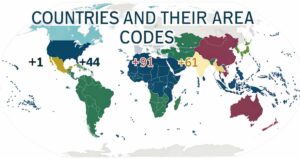Joe Biden Pardons Hunter Biden: Controversy, Reactions, and Political Fallout
4 min read
Joe Biden Pardons Son Hunter: A Decision Shaping U.S. Politics
In a historic and controversial move, U.S. President Joe Biden issued a “full and unconditional” pardon for his son, Hunter Biden, on December 1, 2024. The decision, which reverses Biden’s previous assurances to avoid intervening in family-related legal matters, has unleashed a storm of criticism and praise across the political spectrum.
This pardon covers Hunter’s convictions for federal tax violations and charges related to firearm purchases during a period when he was battling drug addiction. While Biden characterized the decision as a response to political bias and selective prosecution, detractors view it as a politically risky maneuver that could damage his credibility.
The Legal Cases in Focus
Hunter Biden’s legal troubles began during the Trump administration, with investigations into his business dealings and personal conduct gaining momentum. The charges that led to his convictions include:
- Gun Charges: In 2018, Hunter purchased a handgun while addicted to drugs, a violation of federal law. He was charged in June 2024 and faced potential imprisonment following his conviction on three felony counts.
- Tax Evasion: Between 2016 and 2019, Hunter failed to pay over $1.4 million in taxes on his earnings. He pleaded guilty to these charges in September, just before jury selection for his trial was to begin.
Biden’s Rationale: Family or Justice?
President Biden’s decision reflects his dual role as a father and a leader of the nation. In a statement, he expressed anguish over what he termed as “raw politics” affecting the judicial process. “No reasonable person… can conclude anything other than Hunter was singled out because he is my son,” Biden said.
While the pardon spares Hunter from sentencing hearings scheduled in December, the President emphasized that the move was not taken lightly. Biden argued that his son had been a victim of a politically charged legal process, exacerbated by his familial ties to the Oval Office.
Biden explained that the decision was finalized during Thanksgiving, a time spent with family in Nantucket. He also cited Hunter’s progress in battling addiction, emphasizing that the pardon was a stand against efforts to “break” his son for political gain.
Political Reactions and Fallout
Republicans’ Outrage
The pardon has fueled Republican accusations of hypocrisy and abuse of presidential power. Former President Donald Trump labeled the move a “miscarriage of justice” and questioned its implications for legal standards. GOP leaders, including Senator Ted Cruz and House Judiciary Chairman Jim Jordan, criticized Biden for undermining public trust in the justice system.
Jordan remarked, “This pardon confirms what we’ve been saying all along—Hunter Biden is protected by a shield of privilege unavailable to ordinary Americans.”
Mixed Democratic Views
Democratic lawmakers were divided. While some allies lauded Biden’s courage in defending his son against perceived injustices, others expressed concerns about the political implications. Representative Alexandria Ocasio-Cortez acknowledged the personal difficulty of the decision but warned that it could be seen as favoritism.
However, progressive commentators, like MSNBC analyst Mehdi Hasan, suggested the pardon might reflect Biden’s broader critique of a justice system vulnerable to political interference.
The Public Perspective
The public reaction has been equally polarized. Supporters of Biden view the pardon as an act of compassion, highlighting Hunter’s recovery from addiction and his efforts to address past mistakes. Opponents argue that the decision undermines Biden’s credibility and sets a dangerous precedent for presidential powers.
Media coverage has been scathing in some quarters. CNN’s Kaitlan Collins called the pardon a “political timebomb,” warning of potential backlash from voters and the media. Fox News amplified criticisms from conservative figures, while outlets like Politico focused on the legal and political ramifications of Biden’s actions.
What Happens Next?
Legal Protection for Hunter Biden
The pardon shields Hunter from further legal repercussions related to the gun and tax cases, effectively erasing the convictions. However, questions remain about whether the move could spark new investigations into Biden family dealings.
Impact on the 2024 Transition
The decision comes weeks before Donald Trump’s return to the presidency, creating an explosive backdrop for the power transition. Trump, who has faced his own legal challenges, is expected to use the pardon as a campaign issue, framing it as evidence of Democratic corruption.
Legacy and Public Trust
Biden’s legacy may now hinge on how this decision is perceived. While some argue the pardon reflects his commitment to justice, critics contend it undermines his promise to keep the Justice Department independent.
Political analysts suggest that the pardon could sway swing voters in key states, potentially shaping the 2026 midterm elections.
Historical Context
Presidential pardons have long been controversial, particularly when familial or political ties are involved. For example:
- Bill Clinton’s Pardon of Marc Rich: In 2001, Clinton faced criticism for pardoning the fugitive financier in a case seen as influenced by political donations.
- Gerald Ford’s Pardon of Richard Nixon: Ford’s decision to pardon Nixon in 1974 was framed as a move to heal the nation but significantly hurt his political standing.
Biden’s pardon of Hunter adds to this list, reigniting debates about the ethical use of executive clemency.





